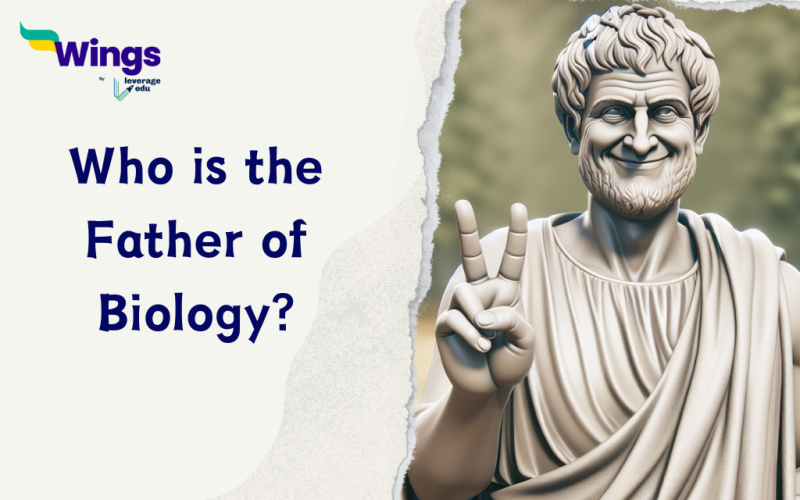Biology, the scientific study of life itself, from its tiniest cellular workings to the vast ecosystems teeming with diverse organisms, is considered to have its roots in the work of Aristotle, a Greek philosopher who lived between 384 and 322 BC. Therefore, we know that Aristotle is the father of Biology. The foundation of biology is sometimes called “Aristotle’s Biology” because of the same reason. Moreover, it can be traced back to the pioneering work of Aristotle, sometimes also referred to as the “Father of Zoology.”
Table of Contents [show]
About the Father of Biology
He was the first to categorize living things into two kingdoms, animal and plant, and his theories explored the fundamental concepts of life processes like metabolism, temperature regulation, and even embryology. The very word “biology” reflects his influence, with “bio” stemming from a Greek word meaning “life” or “living organism.”
| Aspect | Contribution |
| Location and time | Visited Lesbos in the 4th century BC, a place rich in organisms |
| Inspiration | Interest sparked by the diversity of life observed |
| Scientific Approach | Pioneered the study of living things using observation and theory, not mythology |
| Classification System | First to identify relationships between animals and develop a classification scheme |
Also Read- 100 Branches of Biology from A to Z

Also Read- Scope of Biology As A Career: Prerequisites & Pathways
Work and Writings of Aristotle
To know everything about the life of Aristotle it is important to know the fields of the contribution.
| Work | Field | Focus | Impact |
| The Nicomachean Ethics | Philosophy | Virtue ethics and living a good life | Explores the concept of virtues for a satisfying life |
| Politics | Political Theory | Role of government, citizenship, and types of government | Ideal state based on a citizen-respecting constitution |
| Poetics | Literary Criticism | Genre, structure, and analysis of Greek literature | Influenced study of literature, film, and art forms |
| Metaphysics | Philosophy | Existence, causality, and substance | Examines fundamental questions of reality |
| Physics | Natural Science | Motion, time, space, and other scientific concepts | Paved the way for the scientific revolution |
Also Read- What is Botany? Meaning, Importance and Branches
- Father of Zoology – Aristotle
- Father of Medicine – Hippocrates
- Father of Botany and Ecology – Theophrastus
- Father of Anatomy – Andreas Vesalius
- Father of Microscopy – Antony van Leeuwenhoek
- Father of Cytology – Robert Hooke
FAQ
Galileo Galilei is the father of science.
Theophrastus, a Greek naturalist is known as the father of Botany.
Maria Sibylla Merian, also known as Anna Maria Sibylla, is the mother of Biology.
Relevant Blogs
With this, we come to the conclusion of knowing who is the father of Biology. For more such content, visit our general knowledge page.
 One app for all your study abroad needs
One app for all your study abroad needs















 45,000+ students trusted us with their dreams. Take the first step today!
45,000+ students trusted us with their dreams. Take the first step today!
